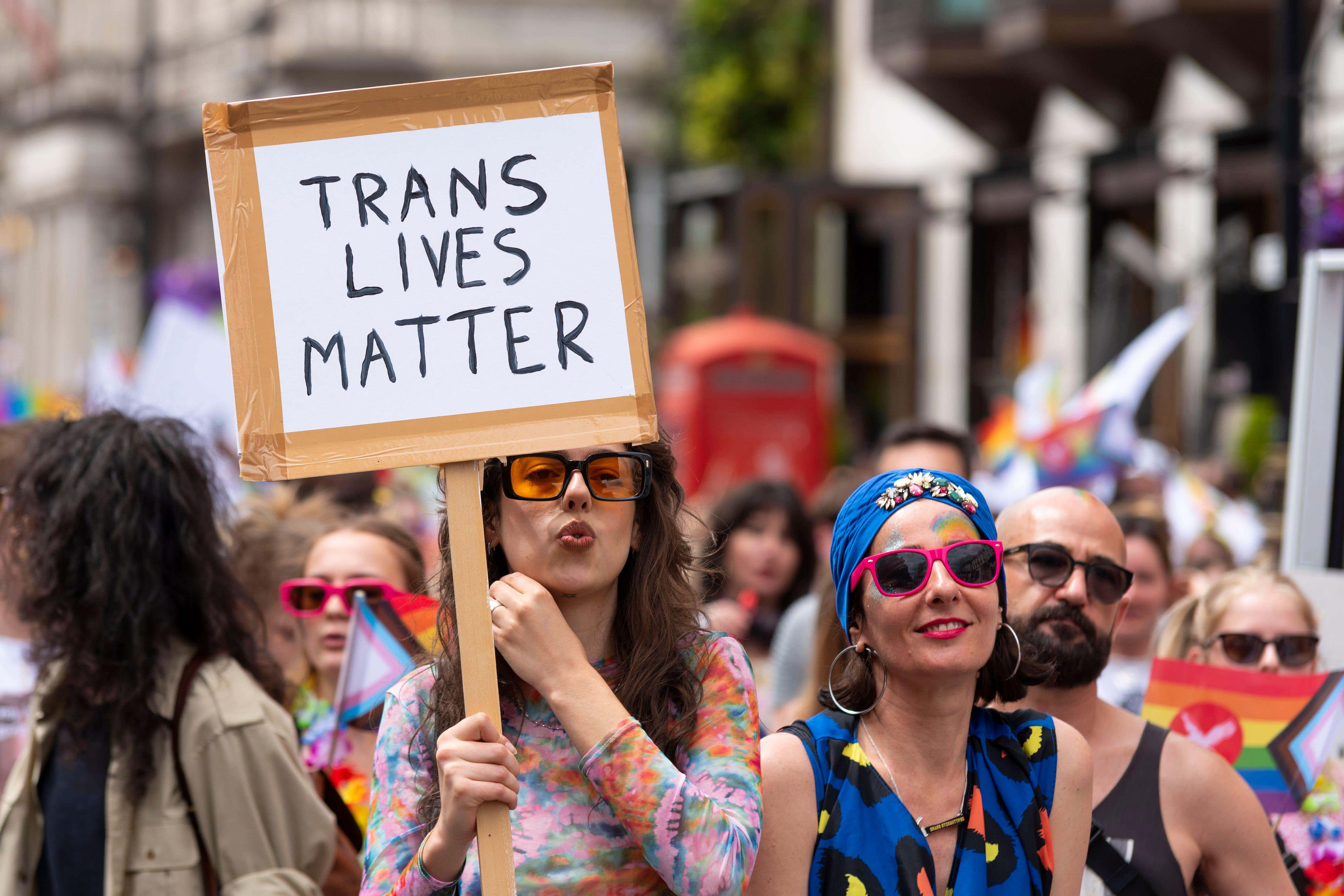LGBT campaigners hail new gender recognition law as MSPs vote for change
Scottish Trans said the Bill will improve the lives of trans people.

Your support helps us to tell the story
From reproductive rights to climate change to Big Tech, The Independent is on the ground when the story is developing. Whether it's investigating the financials of Elon Musk's pro-Trump PAC or producing our latest documentary, 'The A Word', which shines a light on the American women fighting for reproductive rights, we know how important it is to parse out the facts from the messaging.
At such a critical moment in US history, we need reporters on the ground. Your donation allows us to keep sending journalists to speak to both sides of the story.
The Independent is trusted by Americans across the entire political spectrum. And unlike many other quality news outlets, we choose not to lock Americans out of our reporting and analysis with paywalls. We believe quality journalism should be available to everyone, paid for by those who can afford it.
Your support makes all the difference.LGBT campaigners have hailed the passage of a new Bill which will make it easier for people in Scotland to legally change their gender.
The Gender Recognition Reform Bill was voted through the Scottish Parliament on Thursday afternoon after lengthy and often heated debate.
Holyrood spent much of Tuesday and Wednesday debating amendments to the Bill late into the night.
Scottish Trans, part of the Equality Network charity, said the new law will improve the lives of trans people.
MSPs have improved trans men and women's lives by allowing them to live with the dignity and recognition that everyone deserves
Vic Valentine, manager of Scottish Trans, said: “Trans people across Scotland today will be feeling pleased and relieved that this Bill has passed, after many years of difficult public debate that has often felt like people are talking about us, and not to us.
“The law that has passed today will mean that at important moments in their lives, like when starting a job or giving notice to be married, trans men and women will be able to show a birth certificate that reflects who they are.
“We all want to be able to live true to ourselves, and by voting for these simple but important changes to the existing process for trans people to be legally recognised, MSPs will improve trans men and women’s lives by allowing them to live with the dignity and recognition that everyone deserves.”
Tim Hopkins, director of the Equality Network, said: “We thank MSPs, from all parties, who supported this Bill, and those who engaged constructively on amendments.
“This result follows others where the Scottish Parliament has carefully considered the evidence and then legislated for fairness and equality.”
The SNP said it is “proud” the legislation has passed.
MSP Joe FitzPatrick said: “I am delighted and proud to see this piece of legislation pass through Holyrood – it’s been a long time in the making and will make such a positive difference to trans people in Scotland.
“My thanks go out to all the organisations, groups and individuals who have campaigned in favour of this change in the law for a number of years.
“They should be incredibly proud of what they have achieved for this small number of people who are among the most stigmatised in our society.”
On the other side of the debate, the Conservatives said the Bill will put the safety of women and girls at risk.
Tory MSP Rachael Hamilton said: “The majority of Scots – let alone the women’s groups who campaigned vociferously against it – will be dismayed that this flawed and potentially dangerous Bill has been passed by a majority of SNP and Labour MSPs.
“We all support improving the experience for trans people but that should never come at the expense of the safety of women and girls, and their hard-won rights.
“The fact that no substantive amendments to the legislation were passed demonstrates how impervious many MSPs – particularly from the SNP and Greens – were to reasoned argument and public opinion on this divisive issue.
“Myself and the vast majority of my Scottish Conservative colleagues have three main objections to this Bill: the inadequate three-month time limit for GRC applicants to have lived in their acquired gender, the lack of requirement for a diagnosis of gender dysphoria, and the lowering of the age limit from 18 to 16.”